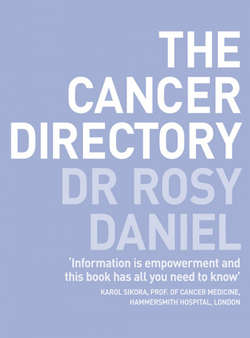Читать книгу The Cancer Directory - Dr. Daniel Rosy - Страница 40
Getting the Help You Need Counselling
ОглавлениеThe first step is usually finding someone who will listen really well to what you are going through. This is usually found in a counselling relationship and, again, I would recommend transpersonal or psychosynthesis counselling, where the state of the spirit is given attention along with help to change our feelings, beliefs and behaviour in positive ways.
The counselling relationship is often believed to be only about helping you to accept what is happening to you, grieving appropriately and becoming adapted to the change. However, in transpersonal or psychosynthesis counselling, the relationship is more about trying to find out what is right about your life and only needs your focused attention to flourish. Help can be given to try to see the message in the crisis and to grow positively from the experience, rather than just learning to accept what is happening.
This is a far more positive and creative form of counselling that fits well with the integrated medicine model. Yes, you may need some straightforward compassionate counselling at first, to help you deal with the shock and your reactions but, later on, you need a counsellor who can help you reframe the crisis as an opportunity for healing and growth. A counsellor of this kind may also help you look at the benefits you may be gaining from illness, helping you learn how to get these benefits without having to be ill. A good counsellor will help you change from being passive in your life to taking an active role in the creation of your ideal lifestyle. He can help you rekindle your will to live and reconnect with that which really turns you on.
Often, a transpersonal or psychosynthesis counsellor will also be able to help you develop a positive mental focus through developing visualization or affirmations with you to help you strengthen your belief in yourself and in your healing. Your counsellor, or a spiritual advisor, can also help you in your spiritual explorations, perhaps helping you to open up to the possibility of healing from a higher source.
The important thing is not to see a counselling relationship as being only about helping you when you are in extreme distress or seeing it as meaning that there must be something wrong with you. Having regular counselling throughout your recovery process can completely transform a potential nightmare into a true blessing, helping you to grow and even benefit in the long term.
